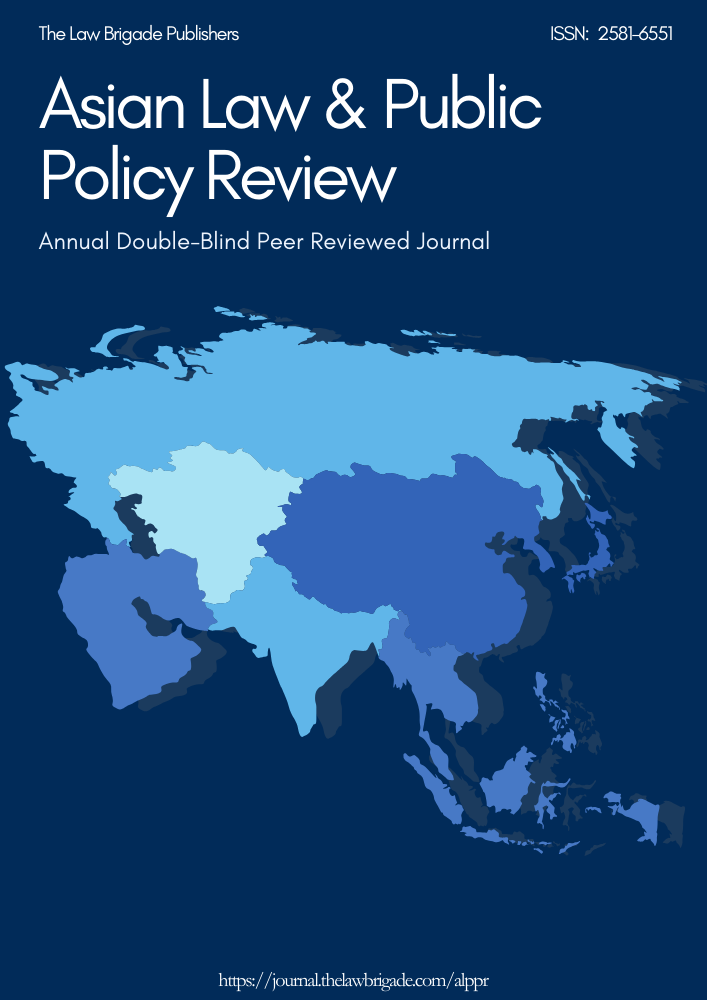Tug-of-war between the ‘fundamental’ and ‘non-absoluteness’ notions of the Right to Privacy
Keywords:
right to privacy, Privacy, Fundamental Rights, InterferenceAbstract
According to Black’s Law Dictionary privacy is “right to be let alone; the right of a person to be free from any unwarranted publicity; the right to live without any unwarranted interference by the public in matters with which the public is not necessarily concerned. With change in time and technological advancements the potential threat to a person’s privacy has increased by manifold. The everyday instances of misuse of an individual’s private data was the main reason that raised the question whether privacy is a fundamental right in the Indian jurisprudence. The privacy advocates extend the claims that right to privacy is a natural right and natural rights are not bestowed by the State and they inhere in human beings because they are human. It was in this regard, that today even Indian judiciary has elevated the concept of privacy to a dignity based privacy as held in Gobind case , in contrast to property-based privacy. Thus, dignity based privacy adds substance to the notion of human life being more than mere animal existence.
Downloads
Downloads
Published
Issue
Section
License

This work is licensed under a Creative Commons Attribution-NonCommercial-ShareAlike 4.0 International License.
License Terms
Ownership and Licensing:
Authors of research papers submitted to any journal published by The Law Brigade Publishers retain the copyright of their work while granting the journal specific rights. Authors maintain ownership of the copyright and grant the journal the right of first publication. Simultaneously, authors agree to license their research papers under the Creative Commons Attribution-ShareAlike 4.0 International (CC BY-SA 4.0) License.
License Permissions:
Under the CC BY-SA 4.0 License, others are permitted to share and adapt the work, even for commercial purposes, provided that appropriate attribution is given to the authors, and acknowledgment is made of the initial publication by The Law Brigade Publishers. This license encourages the broad dissemination and reuse of research papers while ensuring that the original work is properly credited.
Additional Distribution Arrangements:
Authors are free to enter into separate, non-exclusive contractual arrangements for distributing the published version of the work (e.g., posting it to institutional repositories or publishing it in books), provided that the original publication by The Law Brigade Publishers is acknowledged.
Online Posting:
Authors are encouraged to share their work online (e.g., in institutional repositories or on personal websites) both prior to submission and after publication. This practice can facilitate productive exchanges and increase the visibility and citation of the work.
Responsibility and Liability:
Authors are responsible for ensuring that their submitted research papers do not infringe on the copyright, privacy, or other rights of third parties. The Law Brigade Publishers disclaims any liability for any copyright infringement or violation of third-party rights within the submitted research papers.


